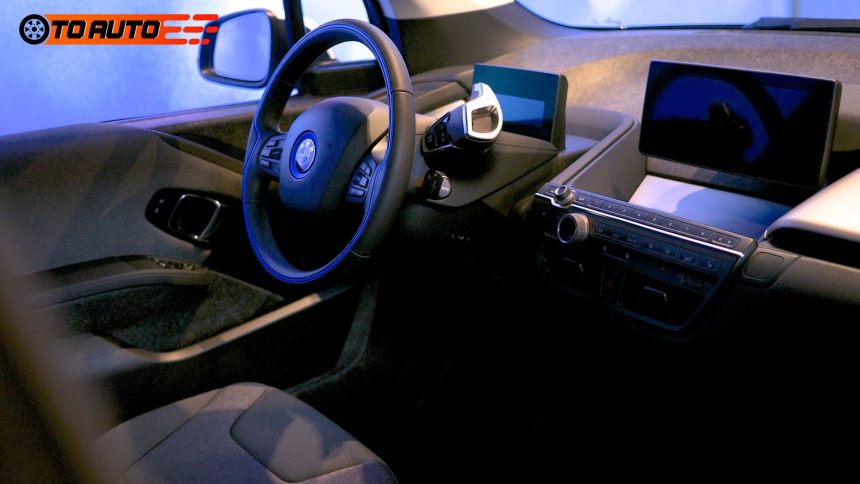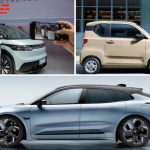The rise of electric vehicles, commonly known as e-cars, is transforming the way we think about driving. As electric cars become more prevalent, they are not only reducing our dependence on fossil fuels but also revolutionizing the overall driving experience. This article explores the various ways in which electric cars are changing our driving habits, offering insights into the benefits and challenges of this rapidly growing technology.
The Silent Revolution of Electric Cars
One of the most noticeable changes that electric cars bring to the driving experience is the quietness of the ride. Unlike traditional gasoline-powered vehicles, which produce noise through internal combustion engines, e-cars operate almost silently. This lack of engine noise creates a more peaceful and relaxed driving environment, reducing stress for drivers and passengers alike.
The quiet nature of electric cars also has broader implications for urban environments. As more electric cars hit the roads, the overall noise pollution in cities decreases, leading to quieter, more livable communities. This shift towards quieter vehicles contributes to improved public health, as lower noise levels are associated with reduced stress and better sleep for city dwellers.
Instant Torque and Acceleration in E-Cars
electric cars offer a driving experience that differs significantly from that of traditional vehicles, particularly when it comes to acceleration. Electric motors deliver instant torque, providing rapid and smooth acceleration from a standstill. This feature makes electric cars highly responsive and enjoyable to drive, especially in stop-and-go traffic.
The instant torque of electric cars also enhances safety by enabling quicker responses in situations where rapid acceleration is needed, such as merging onto highways or avoiding obstacles. Additionally, the lack of gear changes in electric cars provides a smoother driving experience, free from the jerks associated with shifting gears in gasoline-powered vehicles.
E-Cars and the Digital Driving Experience
Electric cars are at the forefront of integrating advanced digital technologies into the driving experience. Many electric cars come equipped with high-tech infotainment systems, connected car features, and autonomous driving capabilities. These digital innovations not only make driving more convenient but also improve safety and efficiency.
The infotainment systems in electric cars often include large touchscreens, voice-activated controls, and smartphone integration, allowing drivers to access navigation, entertainment, and communication tools with ease. Furthermore, connected car features enable electric cars to receive over-the-air software updates, ensuring that the vehicle’s systems are always up-to-date with the latest advancements.
Read More: Electric VS Gas-Powered Cars: A Lifecycle Analysis for Eco-Conscious Comparison
Environmental Impact and E-Car Adoption
One of the most significant impacts of electric cars is their contribution to reducing carbon emissions. E-cars produce zero tailpipe emissions, making them a cleaner alternative to traditional vehicles. As the electricity grid becomes greener with more renewable energy sources, the environmental benefits of electric cars will only increase.
The widespread adoption of e-cars is a critical step towards combating climate change. By reducing the number of gasoline-powered vehicles on the road, electric cars help decrease air pollution, leading to healthier living conditions. Moreover, governments around the world are introducing incentives to encourage the adoption of e-cars, further accelerating the shift towards cleaner transportation.
Cost Considerations and Savings with E-Cars
While the initial purchase price of electric cars can be higher than that of traditional vehicles, they offer significant savings in the long run. E-cars have lower operating costs due to the reduced need for maintenance and the lower cost of electricity compared to gasoline. E-cars do not require oil changes, have fewer moving parts, and experience less wear and tear on brakes, all of which contribute to lower maintenance expenses.
Additionally, many regions offer tax credits, rebates, and other incentives for purchasing e-cars, which can help offset the initial cost. Over time, the savings on fuel and maintenance can make e-cars a more cost-effective option than traditional vehicles, especially as battery prices continue to decrease and charging infrastructure expands.
The Growing Network of Charging Stations
The availability of charging infrastructure is a crucial factor in the widespread adoption of electric cars. Fortunately, the number of public charging stations is rapidly increasing, making it easier for e-car owners to find convenient places to charge their vehicles. This growing network of charging stations is essential for supporting long-distance travel and reducing range anxiety among e-car drivers.
In addition to public charging stations, many e-car owners are installing home charging units, which allow them to charge their vehicles overnight. Home charging offers the convenience of starting each day with a fully charged battery, eliminating the need for frequent trips to charging stations. Moreover, advancements in fast-charging technology are reducing the time it takes to charge an e-car, making electric vehicles even more practical for everyday use.
The Future of Autonomous Driving in E-Cars
E-cars are playing a leading role in the development of autonomous driving technology. Many e-cars are already equipped with advanced driver assistance systems (ADAS) that provide features such as lane-keeping assistance, adaptive cruise control, and automated parking. These systems are the building blocks for fully autonomous driving, which promises to revolutionize the way we travel.
The integration of autonomous driving technology in e-cars could lead to safer roads, reduced traffic congestion, and greater accessibility for people who are unable to drive due to age or disability. As technology continues to advance, fully autonomous e-cars could become a common sight on our roads, transforming the driving experience into one of effortless convenience and safety.
Range Anxiety and Overcoming Charging Challenges
One of the main concerns for potential e-car buyers is range anxiety—the fear of running out of battery power before reaching a charging station. While early electric vehicles had limited ranges, modern e-cars offer much longer driving distances on a single charge. Many new e-car models now have ranges that exceed 200 miles, which is sufficient for most daily driving needs.
To further alleviate range anxiety, e-car manufacturers and charging network providers are working to expand the availability of fast chargers along major highways and in urban areas. These fast chargers can significantly reduce charging time, allowing drivers to recharge their vehicles in less than an hour. Additionally, advancements in battery technology continue to improve the range and efficiency of e-cars, making them more reliable for long-distance travel.
E-Cars and the Transition to Renewable Energy
E-cars are not only changing the way we drive but also playing a key role in the transition to renewable energy. As more e-cars enter the market, the demand for clean electricity will increase, encouraging further investment in renewable energy sources like solar and wind. This shift towards renewable energy is essential for reducing the carbon footprint of transportation and achieving global climate goals.
In some regions, e-car owners can also participate in vehicle-to-grid (V2G) programs, where their e-cars can supply electricity back to the grid during peak demand times. This innovative approach helps balance the electricity grid and supports the integration of renewable energy, making e-cars a vital component of a sustainable energy future.
Conclusion: E-Cars as the Future of Driving
E-cars are fundamentally transforming our driving experience, offering benefits that extend beyond the individual driver to society and the environment as a whole. From the quiet, smooth ride to the integration of cutting-edge technology, e-cars provide a glimpse into the future of transportation. As charging infrastructure expands, costs decrease, and battery technology improves, e-cars are becoming an increasingly viable and attractive option for drivers around the world.
For those looking to reduce their environmental impact while enjoying the latest in automotive innovation, e-cars represent the future of driving. The transition to electric vehicles is not just a trend; it is a movement towards a more sustainable, efficient, and enjoyable way of getting from one place to another. As more drivers make the switch to e-cars, the positive effects on our cities, our planet, and our lives will continue to grow.











